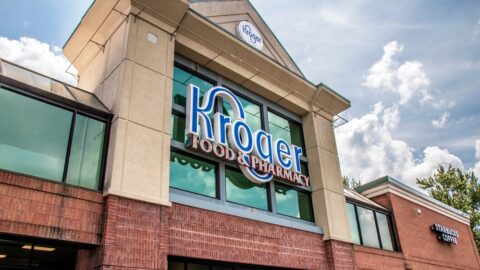If you want to understand Gen Z (and that’s pretty important for any business that wants to grow), you have to understand the dichotomies that define this generation. To take just one pair of juxtaposing facts, Gen Z is indeed digital-first — but they do value the in-store experience, especially if the retailer can deliver “in-person experiences that can be differentiated by allowing for personalization and self-expression,” according to Lindy Li, Head of Customer Activation and Marketing at H&M.
“That’s been a huge learning and unlock for us,” Li added. “The store experience allows for more personalization and more socializing, especially in the post-COVID era, reflecting Gen Z’s desire to do things with friends and peers, as well as their desire for self-expression, which helps define this generation.”
Li was a panelist at the NRF 2024 session, Digital Strategies to Decode Gen Z. Another panelist, Caleb Pearson, VP of U.S. Customer Engagement at McDonald’s, also noted the seeming contradictions that define Gen Z.
“They want to save but also splurge,” said Pearson. “They’re digital but also value real life. They’re activists but also want moments of pacifism and peace. And they love local brands and food, but they also appreciate convenience and the value of big brands.”
Leaning into Social Engagement (Even When it’s a ‘Horror Show’)
Perhaps most important for creating a Gen Z strategy, these people also are “massive content creators and consumers,” and they tend to trust people who are personalities on social platforms over more traditional authority figures like political leaders, Pearson noted. A dramatic example was the reaction to the purple Grimace milkshake that McDonald’s introduced this past summer as a limited-time promotion marking Grimace’s birthday. After memes showing people drinking the shake, wishing Grimace a happy birthday and then “dying,” went viral, McDonald’s thought it had a “legit horror show” playing out on TikTok.
“You just don’t know how this generation will interact with a campaign once it’s out there,” Pearson noted. But rather than ignore this seemingly negative reaction, McDonald’s embraced it. “Our social team was getting emails from friends saying, are you going to be needing a new job?,” said Pearson. “But the team said ‘This is about people expressing themselves, and you need to lean into this.’ So we posted an image of Grimace pretending that he didn’t see the Grimace shake trend on TikTok.”
Transactional and Non-Transactional Loyalty Interactions
The panelists stressed that continuously gathering customer data about this generation is vital, particularly since their pace of change has accelerated. Loyalty programs have long been a key tool for retailers to gather customer data, and that hasn’t changed. In fact, “Gen Z is willing to share their data with you, but it comes with high expectations around what you do with that data,” said Pearson.
H&M’s Li agreed: “This generation has higher expectations because they have so many choices, so any loyalty program interaction has to be both transactional and non-transactional.” The non-transactional elements can be benefits that allow Gen Z to “interact in ways [with you] that they can’t with other companies. For example, we give access to activations [like those we’ve done at] Coachella, and pre-access to H&M’s special designer collaborations. Those are the nuggets of relevance, surprise and delight that entice a customer to stay with you and shop with you over other brands.”
Regarding the in-store shopper journey, brands need to “ensure you’re offering a seamless customer experience in terms of what they’re seeing and experiencing digitally and in-store,” Li added. “For example with customer service in stores, you need staff who can speak to the products, fashion and trends that are unique and more relevant to certain customers. These are the kinds of things that help build a shopping experience and bring it to life, but they are things we often take for granted.”
And taking things for granted is a big danger, particularly with Gen Z — especially since the trends, attitudes and preferences they embrace change so quickly. “It’s about keeping your eyes wide open, staying curious and humble, because you know that [Gen Z] is ever-changing, macroeconomically and politically,” said Li.













